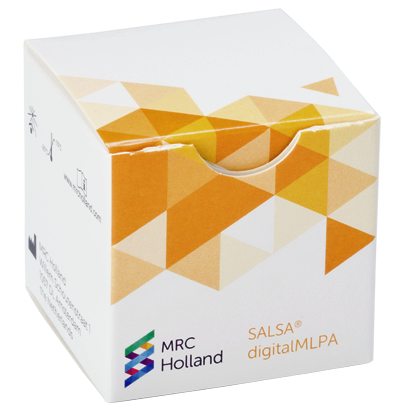P056 TP53

SALSA MLPA Probemix P056 TP53 detects copy number variations in the TP53 and CHEK2 gene.

Contents: 40 MLPA probes, including 15 probes for the TP53 region covering all 11 exons and 4 probes for CHEK2 (including one for the c.1100delC mutation).

Tissue: genomic DNA isolated from human peripheral whole blood. Research use: genomic DNA from tumour tissue.

Application: Li-Fraumeni syndrome (LFS), Li-Fraumeni-like syndrome (LFL) and predisposition to CHEK2-related cancer types.

IVDR certified and registered for in vitro diagnostic (IVD) use in selected territories.

